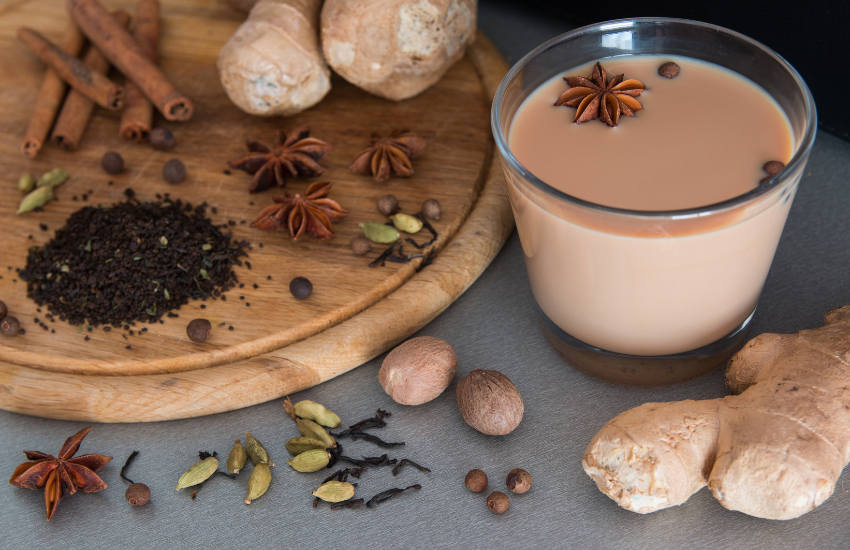If you’re an avid tea lover and cannot do without your daily dose of caffeine, you may have wondered – Does Indian tea have caffeine? Tea is undoubtedly one of the most popular beverages in India, with millions of people consuming it daily.
However, when it comes to caffeine content, there is a lot of confusion among tea drinkers. Some say that Indian tea has high caffeine levels, while others maintain that it’s low in caffeine. So, what’s the truth? If you’ve been pondering this question, you’ve come to the right place.
In this blog post, we’ll delve deeper into the caffeine content of Indian tea and clear up any doubts you may have. From the various types of Indian tea to the impact of brewing methods on caffeine levels, we’ll cover everything you need to know about Indian tea and its caffeine content. So please grab a cup of Chai, and let’s get started!
How much caffeine is in tea in India?
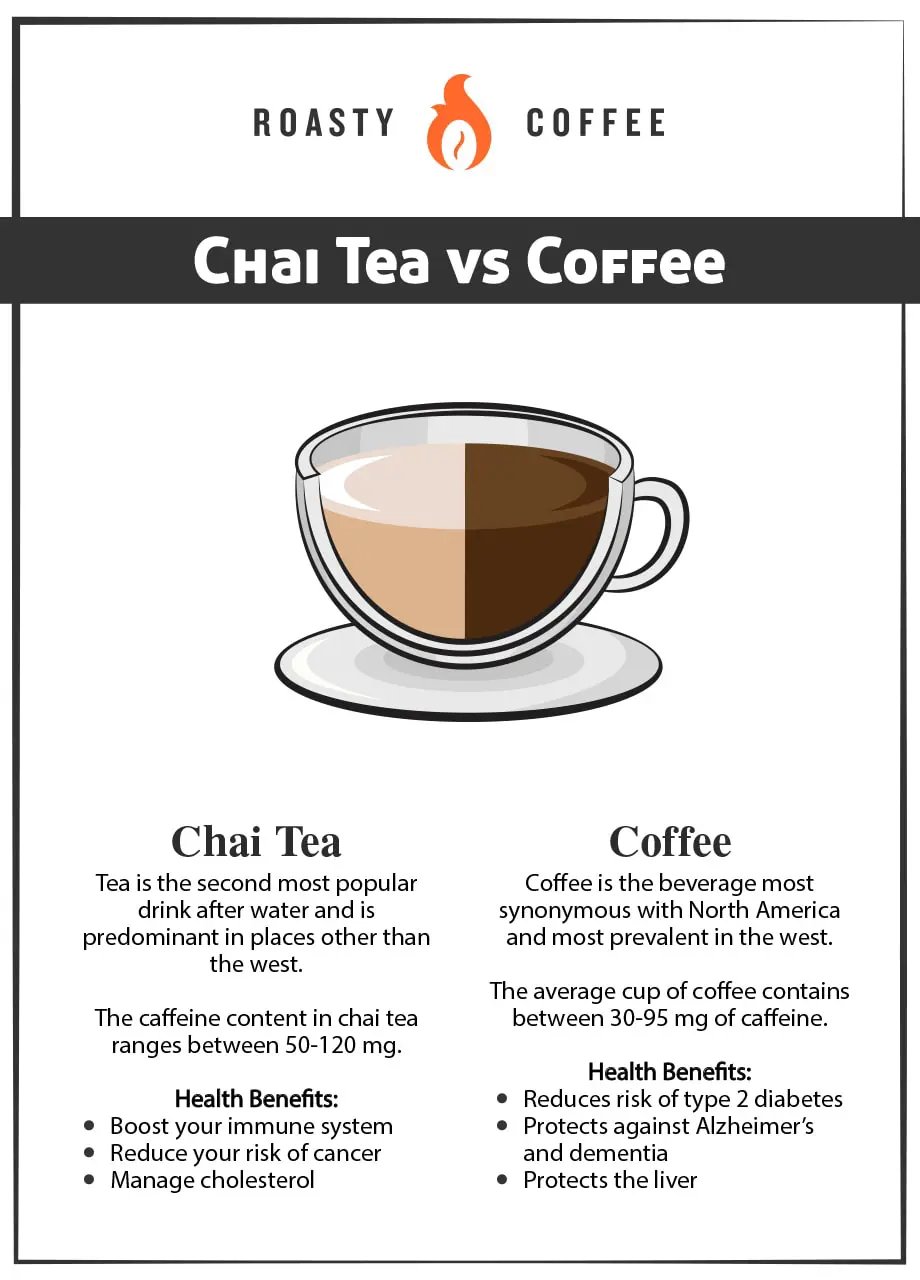
It is essential to address the concerns and queries of tea lovers, particularly regarding their caffeine consumption. In answering the question, “How much caffeine is in tea India?” we conducted lab tests on two popular Tea India® products – the Orange Pekoe Black Tea Bags and the Chai blends (Ginger, Cardamom, and Masala).
Our investigation revealed that a 3.1-gram serving of Tea India® Orange Pekoe Black Tea Bags contains an average of 116 milligrams of caffeine, providing a potent energy boost to start your day. On the other hand, a 2.3-gram serving of Tea India® Chai blends (Ginger, Cardamom, and Masala) contains 67 to 78 milligrams of caffeine, offering a mild yet flavorful kick to your taste buds.
Knowing the caffeine content of your favorite Tea India® product can help you regulate your caffeine intake and avoid the unwanted effects of caffeine, such as jitters, restlessness, and sleep disturbances. As with any dietary decision, consult your doctor or nutritionist to ensure you eat a balanced diet.
How much caffeine is in a chai tea latte?
You can still make an informed estimate despite the various factors affecting caffeine levels, such as brewing time and tea type. According to the Center for Science in the Public Interest, an 8-ounce black tea steeped for three minutes contains roughly 30 to 80 milligrams of caffeine.
Since chai tea is typically made with black tea as the base, its caffeine content falls within the same range. A single serving of a famous chai tea latte contains approximately 50 milligrams of caffeine, similar to a regular cup of black tea. As with any caffeinated beverage, it’s crucial to be mindful of your intake and how your body reacts.
How much caffeine is in Darjeeling tea?
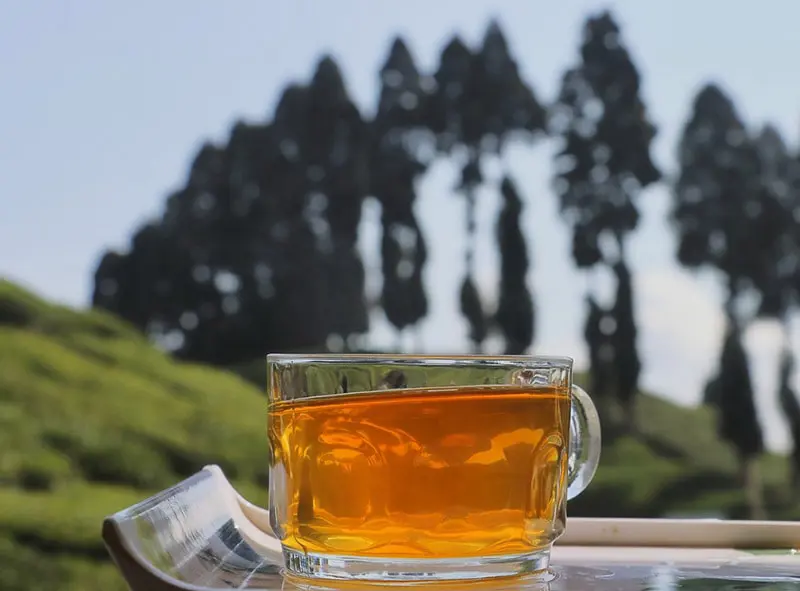
You may have wondered about the caffeine content in Darjeeling tea. Fortunately, a study has found that every 3.5 ounces (100 grams) of Darjeeling tea contains roughly 1.7 grams of caffeine. This measurement is relatively high compared to other types of Indian black tea researched in the same study, as emphasized by the given figure.
As a curious tea enthusiast, calculating the amount of tea leaves needed for the average cup of tea is crucial. In this case, only around 7 grams of black tea are required. Thus, it’s essential to know the potency of each tea to adjust the steeping time and dosage accurately.
Does black tea have caffeine?
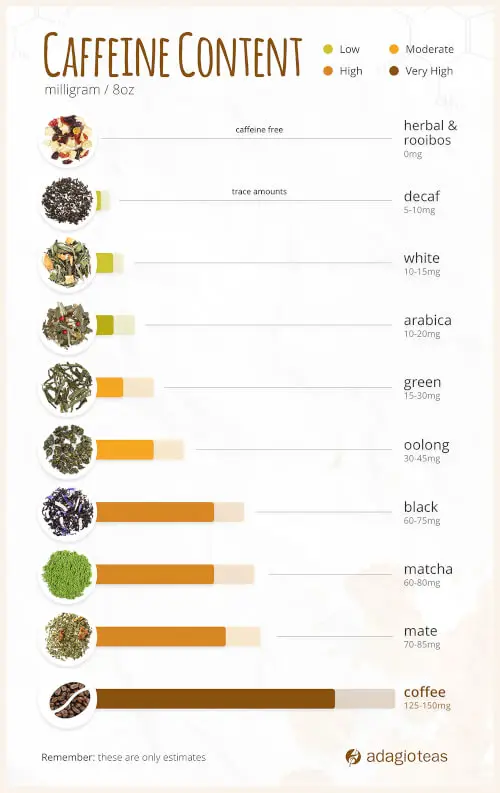
If you’re wondering, “Does black tea have caffeine?” the answer is yes – on average, there are about 47mg of caffeine in a typical cup of black tea mixed with milk. Green tea typically contains less caffeine than its darker counterpart, averaging 33mg per cup.
If you’re looking for a bolder kick, matcha green tea – often sold as a powder – contains around 35mg per half a teaspoon. But what if you prefer herbal teas? It’s worth noting that not all herbal teas contain caffeine. While some varieties like yerba mate or guayusa contain caffeine, most herbal teas from ingredients like chamomile, peppermint, or ginger are naturally caffeine-free.
How much caffeine is in Indian tea?
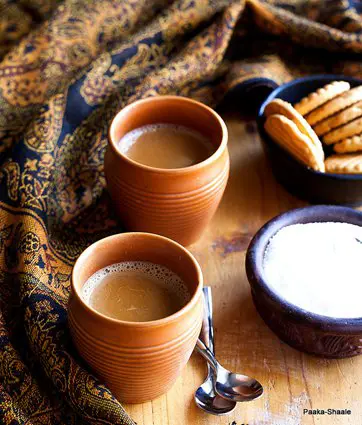
One of the most common questions I receive is, “How much caffeine is in Indian tea?” After all, for many of us, a warm cup of Chai is an essential part of our daily routine. So, let’s dive into the numbers. One cup of Chai made from the powdered form is estimated to contain 25 to 55mg of caffeine.
You can expect closer to 30 to 35mg if you opt for the concentrate. To put this into perspective, your average cup of coffee contains around 120mg of caffeine. So, coffee might be the better option if you’re looking for a quick energy boost.
However, remember that tea offers other benefits, such as antioxidants and a lower risk of jitters or crashes. Ultimately, it’s all about finding what works best for your needs and preferences.
Does Indian tea have more caffeine than coffee?
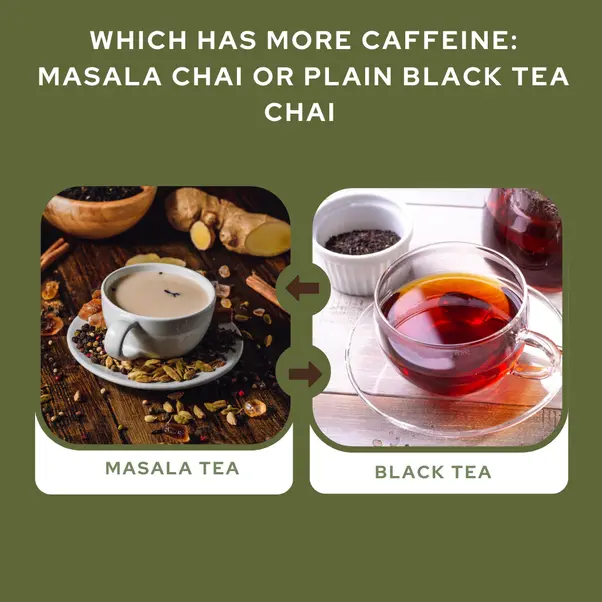
One common question among tea drinkers and coffee consumers is whether Indian tea has more caffeine than coffee. It’s important to note that the caffeine in chai tea acts differently in the body compared to coffee.
While a typical cup of chai tea prepared as directed contains around 40mg of caffeine, equivalent to the amount of caffeine found in 4 oz of black tea, the quantity above pales compared to the roughly 120mg of caffeine in an average cup of coffee.
Therefore, chai tea is an excellent choice if you’re looking for an alternative to coffee that still offers an energy boost without the intense jitters and crashes.
Is Indian chai tea high in caffeine?
For those wondering whether Indian chai tea is high in caffeine, the answer lies in the tea’s composition. The tea is a unique blend of black tea leaves and an array of flavorful herbs and spices such as ginger, cinnamon, cardamom, and cloves. While the tea’s herbs and spices are caffeine-free, black tea leaves contribute to the moderate caffeine content.
Therefore, despite being a refreshing and flavorful beverage, those sensitive to caffeine should consider consuming Indian chai tea in moderation. Nonetheless, when enjoyed in the correct quantity, this exotic tea will tantalize your taste buds and provide a perfect balance of flavor and stimulation.
Does Indian milk tea contain caffeine?
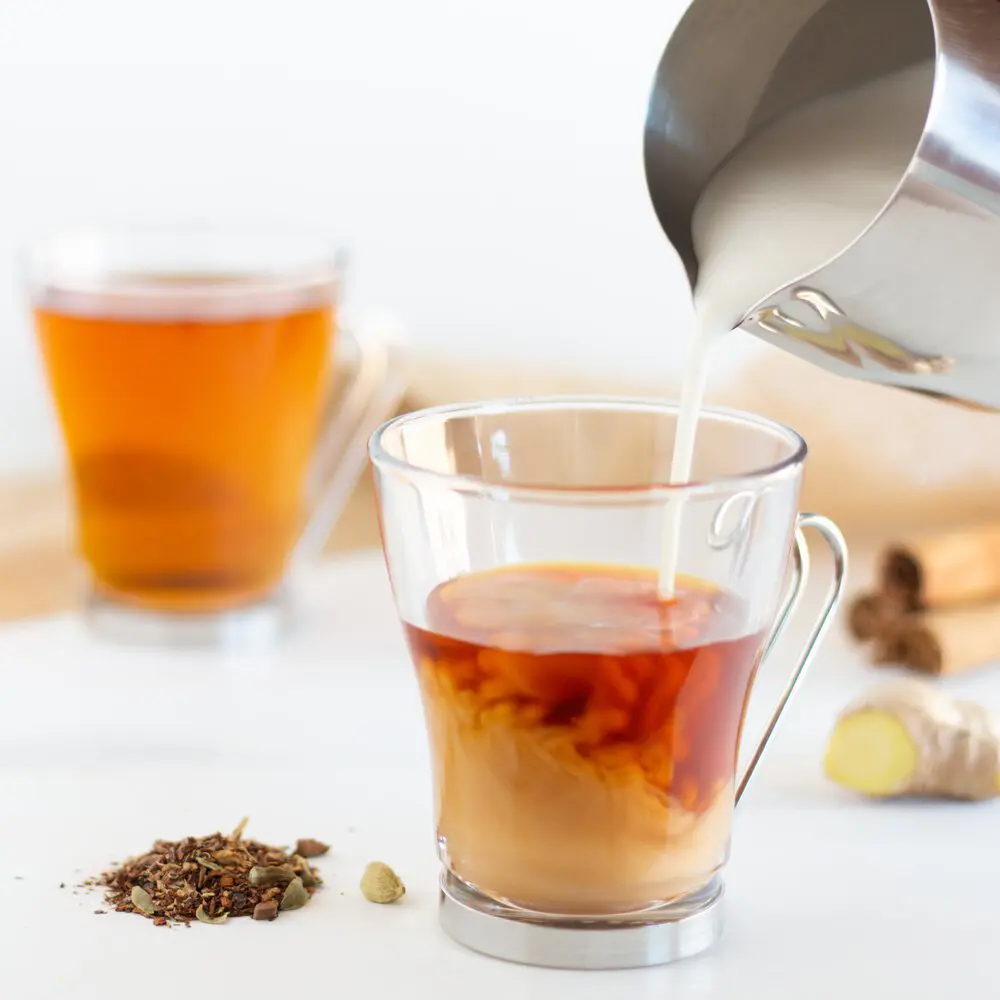
The answer is yes, it does! However, the amount of caffeine in a 240 ml cup of chai tea is approximately 25 mg, half the amount in black tea and one-quarter of that in a standard cup of coffee (32 mg).
The caffeine content in tea is subject to the type of tea used and the brewing method, but generally, chai tea tends to have less caffeine because it is often a blend of tea leaves with spices and herbs like cinnamon, cardamom, and ginger. Therefore, if you are looking for a hot beverage that is stimulating but not excessively caffeinated, Indian milk tea or chai tea may be the perfect fit for you.

